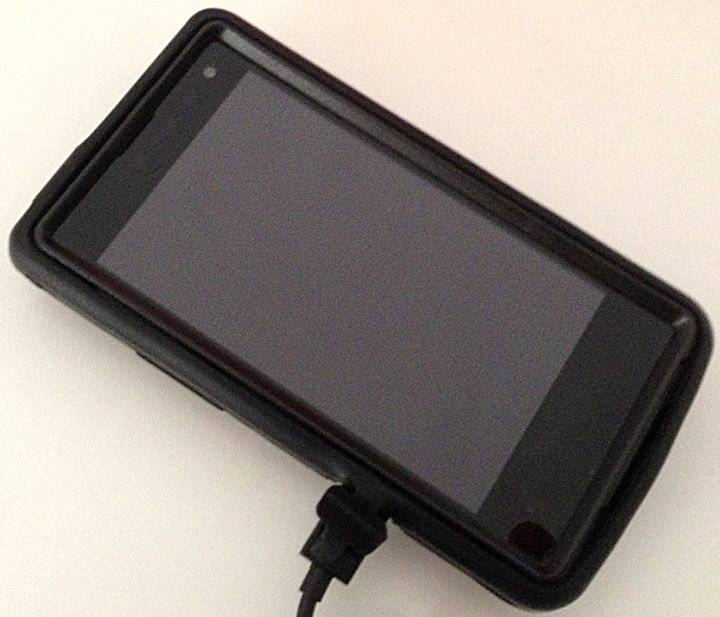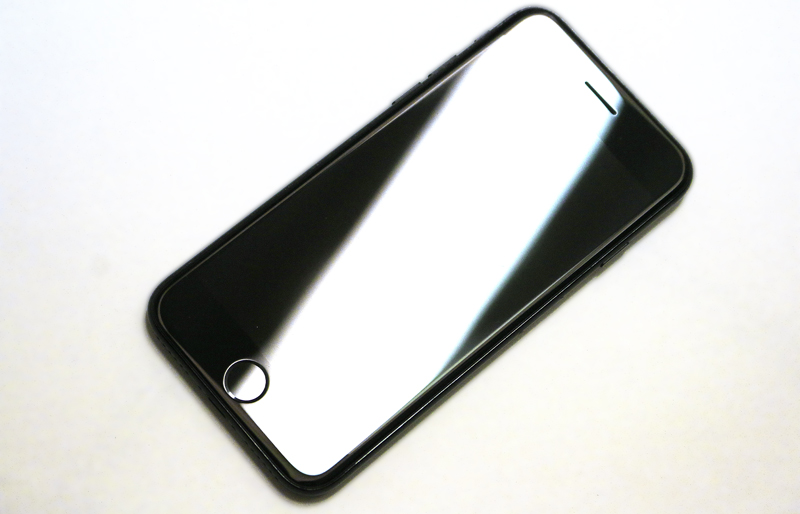After almost two decades of grappling with the decision to allow passengers to place telephone calls using their portable electronic devices and mobile telephones, the Federal Communications Commission of the United States terminated the rule making proceeding pertaining to proposing to revise its rules in governing mobile communications services aboard airborne aircraft; and — subject to certain conditions — to permit inflight voice services and data services via mobile wireless frequencies.
Forget Mobile Telephone Calls Aboard Airplanes For the Foreseeable Future, According to the Federal Communications Commission of the United States
Within a month after the Federal Aviation Administration of the United States and the European Aviation Safety Agency released announcements to allow the expansion of the usage of certain portable electronic devices to be used throughout all phases of a flight — including taxi, takeoff and landing — the Federal Communications Commission first adopted the notice of proposed rule making proceeding pertaining to Expanding Access to Mobile Wireless Services Onboard Aircraft, Wireless Telecommunications Docket No. 13-301 on Thursday, December 12, 2013 and released it on Friday, December 13, 2013 to consider whether mobile wireless communications services should be permitted during flights with which an aircraft is equipped with a specialized picocell or other platform designed to minimize the risk of interference to terrestrial wireless networks. Provision of such services would have been limited to altitudes above 10,000 feet.
“Based on the record in response to the Commission’s proposals, we decline to pursue, and hereby close, this rulemaking proceeding”, according to this official document, which was signed by Marlene H. Dortch, who is the secretary the Federal Communications Commission of the United States. “The record is insufficient to determine any reasonable solution that would strike an appropriate balance of competing interests. There is strong opposition to the Commission’s proposals from many commenters in this proceeding, including our nation’s airline pilots and flight attendants, who argue that it ‘fail[s] to address significant safety and national security concerns.’”
One of the commenters was Sara Nelson, who is the international president of the Association of Flight Attendants-CWA, AFL-CIO. The official statement from that industry union — which was initially released back on Thursday, November 21, 2013 — left no doubt as to the position taken on the issue of the usage of mobile telephones aboard airplanes during a flight:
AFA opposes any changes that would allow in-flight voice calls. Flight Attendants, as first responders and the last line of defense in our nation’s aviation system, understand the importance of maintaining a calm cabin environment. Any situation that is loud, divisive, and possibly disruptive is not only unwelcome but also unsafe. Many polls and surveys conducted over the years find that a vast majority of the traveling public wants to keep the ban on voice calls in the aircraft cabin. In far too many operational scenarios, passengers making phone calls could extend beyond a mere nuisance, creating negative effects on aviation safety and security that are great and far too risky.
Besides potential passenger conflicts, Flight Attendants also are concerned that in emergencies, cell phone use would drown out announcements and distract from life-saving instructions from the crew.
A number of commenters — most of whom represented the telecommunications industry — argued that the results of international studies and operations may not adequately reflect whether onboard mobile operations can be safely permitted in the United States; and that rigorous technical studies based on standards specific to the United States remain necessary.
A Brief History
A precedent exists for allowing telephone calls during a flight: remember when airplanes were equipped with Airfone — a telephone which could be used during a flight — by either Verizon or GTE? The rates were $3.99 per minute plus a connection fee of $3.99 — which equated to eight dollars for that first minute.
The high cost of using Airfone discouraged many passengers from using that service. When someone did use it, it was usually only for a few minutes at best — hardly an inconvenience to fellow passengers.
By the way, Airfone was acquired by Gogo back in 2012; and — according to this article written by Seth Miller of PaxEx.Aero on Tuesday, December 1, 2020 — “Gogo is officially out of the commercial aviation in-flight connectivity business. The company closed its $400 million cash transaction with Intelsat early Tuesday morning, making good on a promise from two weeks ago to complete the deal in early December.”
Many passengers aboard airplanes have for years been against the very thought of allowing passengers to use a mobile telephone during a flight. Additionally, the reality of passengers one day using wireless telecommunications devices aboard commercial airplanes during flights had been a possibility for years.
In July of 2003 — after an announcement was purportedly released pertaining to a study commissioned by the Federal Aviation Administration and the Air Transport Association intended to resolve whether or not wireless telecommunications devices on commercial flights interfered with navigational equipment — there was talk of passengers being permitted to use cellular telephones by 2006. This was compounded by both the discussion of Boeing concluding a week of demonstration flights testing the “roaming” of cellular telephones and the discussion of Airbus to have the airplanes it manufactures tested for cellular telephones by 2006. American Airlines also reportedly tested the possibility of the future usage of cellular telephones during flights in 2004; while SAS in 2005 considered allowing the usage of cellular telephones by passengers aboard airplanes during flights but then decided against it in 2008 as a result of customer feedback.
Regardless, many FlyerTalk members were opposed — with some vowing to quit traveling on airplanes if that ever happened.
In 2015, the Advisory Committee for Aviation Consumer Protection of the Department of Transportation of the United States reportedly approved a recommendation that — if safe and secure — commercial airlines should be able to decide whether passengers can place telephone calls during flights
According to a poll which was posted on FlyerTalk back on Sunday, January 6, 2014, the statistics as of the time this article was posted — yes, that poll is still open — consisted of the following:
- 89.05 percent of FlyerTalk members are opposed to the usage of cellular telephones during a flight
- 10.95 percent of FlyerTalk members are in favor of the usage of cellular telephones during a flight

On Friday, October 5, 2018, members of the House of Representatives of the United States passed the Federal Aviation Administration Reauthorization Act of 2018, which requires the Department of Transportation to issue regulations prohibiting an individual on an aircraft from using a mobile device for voice communications during a scheduled passenger flight.
In the most recent document from the Federal Communications Commission — which was adopted on Tuesday, November 24, 2020 and released on Friday, November 27, 2020 — given the state of the record, the federal agency found that continuing to pursue this rule making proceeding as contemplated in the above-captioned docket would not serve the public interest or be a wise use of its limited resources.
The proceeding was hereby terminated effective immediately upon release of the order.
Summary
I used the Airfone service exactly once years ago for a very abrupt telephone call because I needed to update someone with important information. It was an expensive call.
As I have said in the past, there is a difference to me between the allowance of the operation of portable electronic devices versus permitting passengers to place telephone calls during a flight and that I would support the used of “texting” using a mobile telephone or tablet. I might even relent and say that telephone calls can be permitted during a flight for a fee bordering on exorbitant to discourage passengers from engaging in long conversations. However, the last thing that I want during a flight is to hear a one-sided conversation about some business transaction loudly announced by some buffoon who has no respect or consideration for the peace and quiet of his or her fellow passengers — especially if I am attempting to relax after a long day; or if I did not get enough sleep the night before; or if I had experienced some horrific delays.
You may as well seat me next to a crying baby. It can be that irritating.
The volume of a conversation aboard an airplane may not always be due to the arrogance of a person. There can be a significant amount of ambient noise aboard an airplane during a flight — primarily emanating from the engines or propellors — which can cause a person to speak louder than normal. This may especially be true if the person does not hear well…
…and what about during announcements by members of the flight crew aboard an airplane during a flight? Will those passengers in the middle of their calls be forced to place their calls temporarily on hold or hang up?
A possible compromise which I had proposed is to designate a specific area of the aircraft where passengers may use cellular telephones to place calls during a flight — and possibly have the airlines charge an ancillary fee. Those passengers would not be denied the opportunity to place telephone calls; other passengers would not have to deal with any potential etiquette and rudeness issues; and the airline can actually profit in the process.
Count me as one of the people who is pleased with the decision set forth by the aforementioned order by the Federal Communications Commission.
All photographs ©2013 and ©2017 by Brian Cohen.
